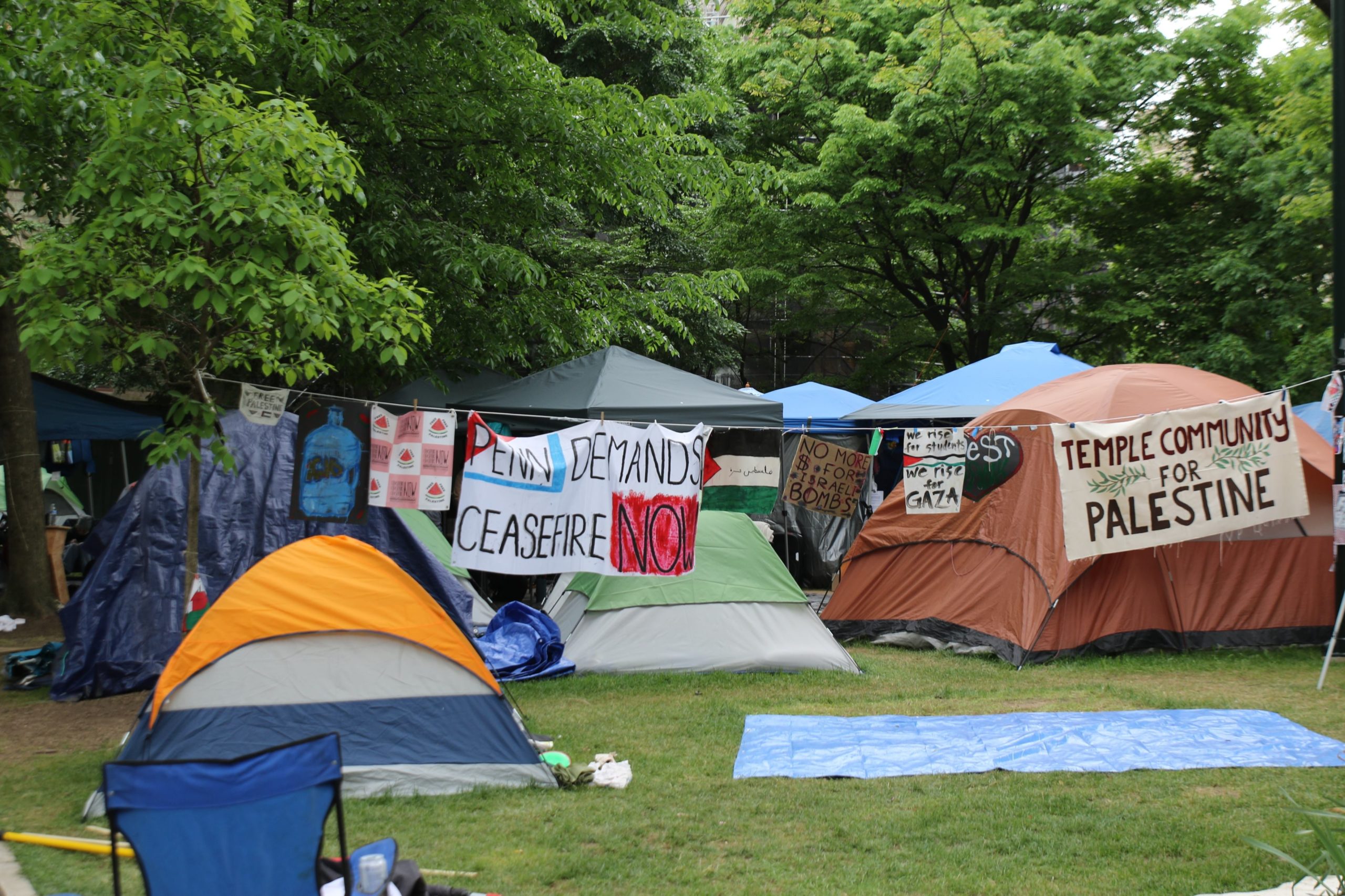
The University of Pennsylvania (Penn) has found itself at the center of a contentious debate after announcing the decision to place students on leave in connection with a pro-Palestinian encampment on campus. The move has ignited discussions about free speech, academic freedom, and the boundaries of activism within educational institutions.
Background: The controversy stems from an encampment set up by students on Penn’s campus in solidarity with Palestine amid the ongoing Israeli-Palestinian conflict. The encampment served as a focal point for discussions, rallies, and educational events aimed at raising awareness about the plight of Palestinians and advocating for their rights.
University Response: In response to the encampment, Penn administrators issued a statement expressing concern about the encampment’s impact on campus safety and the university’s ability to fulfill its educational mission. The university cited concerns about the encampment violating campus policies and disrupting normal operations.
As a result, Penn announced that students involved in organizing or participating in the encampment would be placed on temporary leave while the university conducts an investigation into the matter. This decision has drawn criticism from students, faculty, and activists who argue that it stifles free speech and punishes students for engaging in peaceful protest.
Debate Over Free Speech: The decision to place students on leave has reignited debates about free speech and academic freedom on college campuses. Some argue that universities have a responsibility to protect the rights of students to engage in peaceful protest and express their political beliefs, even if those beliefs are controversial or unpopular.
Others contend that universities must balance free speech rights with concerns about safety, security, and the ability to maintain a productive learning environment. They argue that the encampment crossed a line by disrupting campus operations and potentially putting students at risk.
Calls for Dialogue and Resolution: Amid the controversy, there have been calls for dialogue and resolution to address the underlying issues raised by the encampment. Students, faculty, and administrators have emphasized the importance of open communication, mutual respect, and constructive engagement in addressing complex and divisive issues such as the Israeli-Palestinian conflict.
Moving forward, there is a recognition of the need to find common ground and work towards solutions that uphold principles of free speech, academic freedom, and campus safety. The Penn community remains committed to fostering a campus environment that values diversity of thought, promotes open dialogue, and respects the rights and dignity of all members.
Conclusion: The decision to place students on leave over the pro-Palestinian encampment at Penn has sparked heated debate and raised important questions about free speech and activism on college campuses. As the university navigates this controversy, there is a recognition of the need for dialogue, understanding, and a commitment to upholding principles of academic freedom and free expression.




